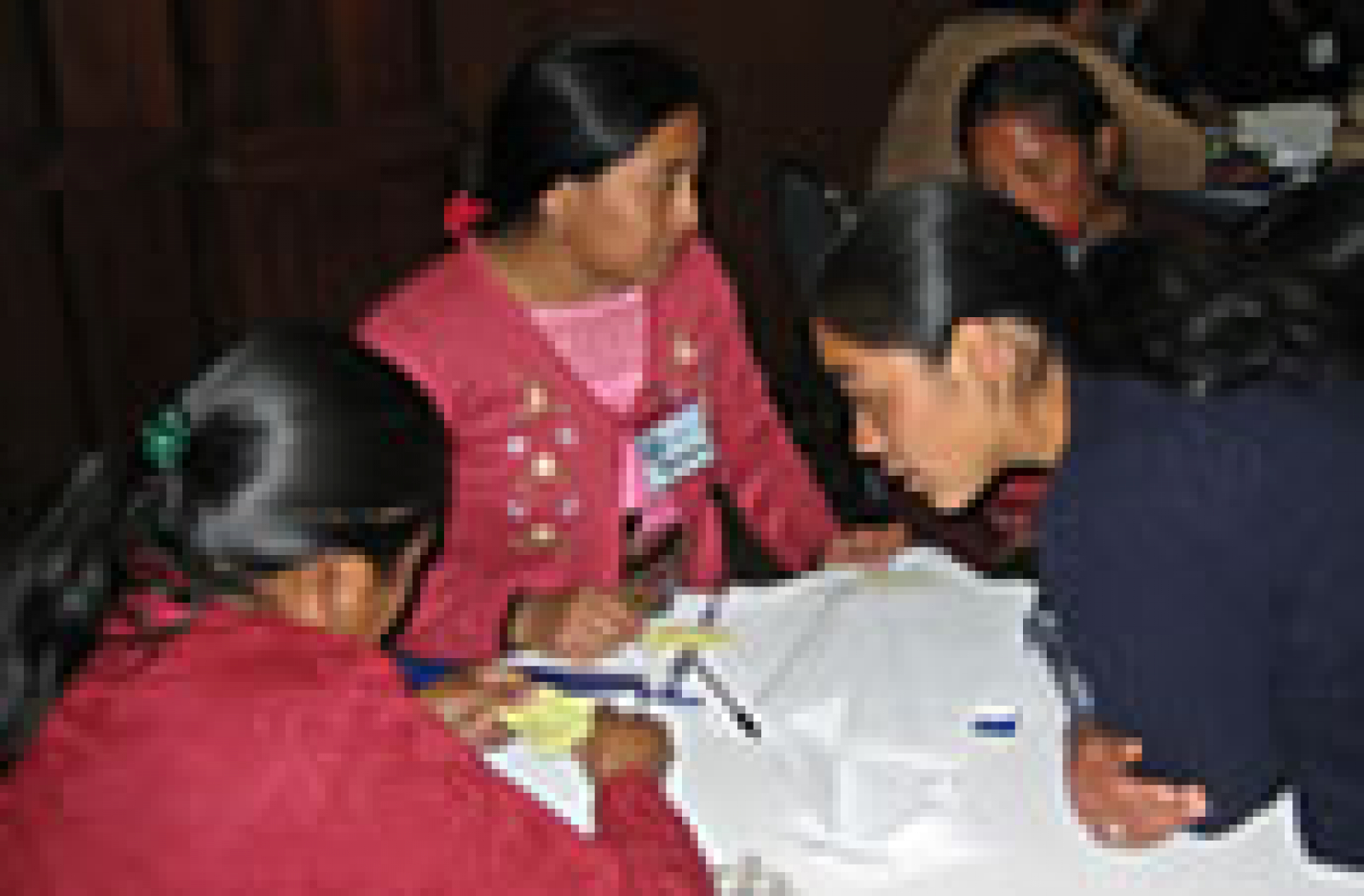
SHARE
In 1996, United Nations-sponsored peace accords were signed in Guatemala, ending 36 years of armed conflict. Although one of the goals of the accords and related agreements was increasing the political participation of the indigenous population, this has yet to be realized. Indigenous women in particular face the greatest political marginalization. Although at least 20 percent of the Guatemalan population is indigenous women, only two of 158 deputies in Congress and one of 333 mayors are indigenous women. Furthermore, 50 percent of indigenous women surveyed in key municipalities planned to abstain from voting in 2007, a significantly higher rate than that among other Guatemalans.
To address this exclusion and reduce the political marginalization of indigenous women in Guatemala, NDI is organizing an Indigenous Women’s Political Leadership Academy that aims to provide indigenous women leaders with the knowledge and skills to play an active role in political life.
In an effort to tailor the Indigenous Women’s Political Leadership Academy to the needs of indigenous Guatemalan women, NDI developed and organized the Academy with two local partners, the Multiparty Institute for Political Studies and the Political Association of Mayan Women (MOLOJ). The Academy works with major political parties across the democratic spectrum. It takes a participatory approach to training in order to better equip the women to participate in local advisory councils, obtain and strengthen their leadership roles in political parties and civil society organizations, and promote indigenous women’s issues .
The pilot workshop took place in Quetzaltenango in November and focused on strengthening the participants’ knowledge of citizenship, political participation, democracy and democratic institutions, and on building their leadership skills. Fifty-seven women — 25 from political parties and 32 from civil society organizations — participated in the pilot workshop. The participants, primarily from the K’iche’ and Mam ethnic groups, represented six political parties and five departments (provinces).
Participants felt the workshop was helpful in further developing their leadership skills and expressed an interest in participating in monthly two-day workshops to build on the initial training. In 2009, NDI will continue to implement the academy on a monthly basis in Quetzaltenango. After the women complete the Academy, they will have the opportunity to participate in a mentorship program, allowing them to utilize their skills and gain more experience.
Pictured above: Indigenous Guatemalan women participate in an Academy workshop.
Also in This Issue of the Win With Women Newsletter
Subscribe to the Win With Women Newsletter | Sign up today »
–
Published on March 16, 2009


